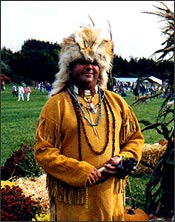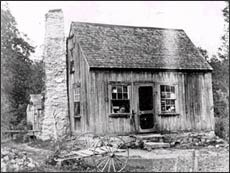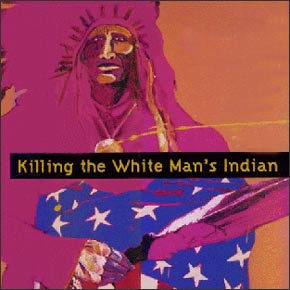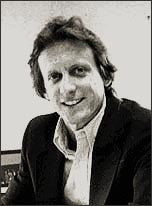



Donald Trump's Indians
» Listen "It legitimizes who we are," says Cunha. The decision means the tribe will be entitled to federal grants to help the tribe with housing, medical care, and education. It could also bring them the kind wealth that only a casino can bring. This Paucatuck Eastern Pequots represent a modern phenomenon in Indian country: the marriage of tribal interests with powerful non-Indian casino backers. Chief Cunha is in business with Atlantic City casino developer Donald Trump, a partnership of almost comic irony; just a few years ago Trump complained to Congress about unfair competition from Connecticut's Indians. He told the lawmakers, "they don't look like Indians to me." But today, they do look like a good investment, as do dozens of tribal groups across the country, who are backed by casino developers. Critics say they're exploiting federal recognition to grab a fast ride to casino wealth. Chief Cunha responds that the truth is just the opposite.
"Indians go into gaming to get federally recognized,"
he says. But Chief Cunha says this is about restoration of tribal culture and sovereignty. He traces his Indian roots to his maternal grandfather, who he says was part black and part Pequot. He also has Portuguese and Irish blood, but he says it was that fraction of Native American blood that defined his family -- in spite of what his high school teachers said. "They told me the Pequots were extinct," recalls Cunha. "I raised my hand and said, I'm a Pequot." The teacher, thinking she had a trouble maker in her class, threw the young Mr. Cunha out of her class and sent him home. But the next day he was back, accompanied by his grandfather, dressed in full Pequot regalia. Cunha remember how his grandfather stood proudly in the classroom and challenged the teacher, "Tell me I don't exist." "That's the kind of role model I had growing up," says Cunha. Certainly it is the right of anyone to define who they are. But
in this case at stake are federal benefits, tax shelters -- and
the right to establish sovereign enclaves. This troubles Fergus
Bordewich, who has written extensively about Native Americans and
federal Indian policy. Bordewich believes that in many cases tribal
sovereignty is exploited unfairly to establish special enclaves
of privilege.
If, for example, an individual is 50 percent Irish-American, twenty-five percent Italian-American, perhaps a fraction German and a fraction Indian, a person who has lost touch with tribal traditions, how is he any different from many Americans with equally diverse heritages? "It's not surprising," says Bordewich, "that many people find it unfair that groups like these get special privileges." In his book, "Killing the White Man's Indian," Bordewich writes of the shameful failure of two centuries of federal Indian policy -- from outright genocide and exile, to forced assimilation and bigotry. Since the 1970s, Washington has embraced more enlightened efforts to strengthen tribal autonomy, which Bordewich applauds. But he wonders if encouraging a multitude of mini-states is wise. Societies grow, he argues, when there's a sense of shared responsibility, interest, and commitment; and when we recognize how much we have in common. "In many cases," says Bordewich, "tribal sovereignty is a recipe for separation and segregation." Connecticut Attorney General Richard Blumenthal, argues tribal sovereignty can also be used to erode the public interest. Blumenthal is challenging in federal court the recognition of the Eastern Pequots, charging that the tribe failed to demonstrate tribal continuity through the years. With his square jaw and good looks, Blumenthal cuts the profile of a latter-day Eliot Ness fighting the proliferation of casinos across his state.
"What drives the urgency of this are the dollars," says Blumenthal, who is alarmed by the out-of-state non-Indian casino backers like Donald Trump investing heavily in the tribal recognition process. "Now more than ever," he says, "the dollars make this decision a turning point in tribal-state-federal relationships." As Indian gambling has boomed, so has the number of groups seeking federal recognition across the country -- there are now more than 200 -- and so has the influence of money. A report from the General Accounting Office found the tribal recognition process at the Bureau of Indian Affairs under-staffed and in disarray - with potential advantages going to tribes with wealthy backers. Enough is Enough Tribal gambling is a $13 billion industry nationwide. In Connecticut it represents half of the state's $4 billion economy, and Jeff Davis, a Democratic state representative from the state's rural northeast corner, says that's enough. Twelve years ago, state politicians had no idea that they were signing up for two of the world's biggest casinos. Now they have seen the results, and Davis says it is time to put the brakes on. "Any more," says Davis, "threatens the quality of life in Connecticut. Federal law requires states to allow tribal gambling on reservations if the states permit the same kind of gambling off the reservations. Because Connecticut has for years permitted charities and churches to run occasional Las Vegas night-style fundraisers, Indian tribes can run casinos. So Davis sponsored a bill, signed into law this winter that repealed that Las Vegas-nights-charity law. Now, he says, newly recognized tribes are out of luck. "I don't think there should be any right for anyone, no matter what their color or race or ancestry to have a casino," declares Davis, who adds, "That's a wrong view to have."
Indian backers say the state can't deprive newly recognized tribes of casinos when it's already given two other tribes seats at the gaming table. The repeal is bound to end up in court. The Paucatuck Eastern Pequots, next in line for a casino, has not said yet if they'll challenge it. But their chief, James Cunha, says opposition to tribes like his is hypocritical. Cunha argues that as long as tribes were seeking federal recognition to sell fruits, vegetables, and Indian trinkets from their trailers, there was no problem. "The problem," he says, "is that we've become entrepreneurial and self-sufficient - maybe even better off than the communities around us." As anti-casino forces mobilize across Connecticut they say their voices are finally being heard. Jeff Benedict of the Coalition Against Casino Expansion calls the repeal of the Las Vegas Nights Law a major victory. And he says a court challenge will lead to a long overdue re-examination of the limits of tribal sovereignty. "This is a national issue," says Benedict, "that I would like to see go to the Supreme Court." Benedict says this debate is a debate about the relationship between federal, state, and Indian sovereign rights. "Do states have sovereign rights to dictate the course of their policy on gambling,?" he asks. "I think they do. That's what this is all about." » Next: The Casino Where Everybody
Wins |






